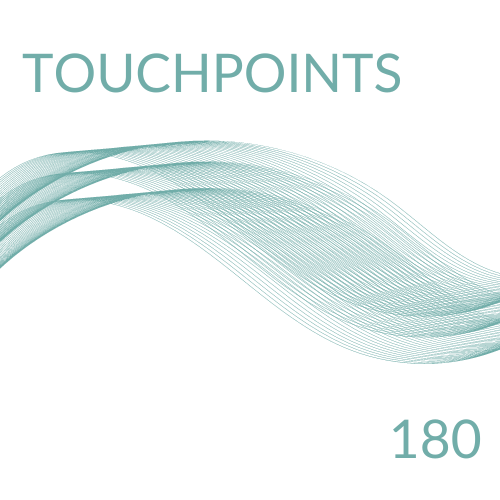
Ethan roared with rage. With one sweep of his arm, he swiped the figurines off the sideboard, and they crashed to the floor with the tinkling of shattered porcelain. Megan rushed to the room, and gasped when she saw the pile of shards on the floor. Her collection was destroyed. She knew better by now than to confront her 16-year-old son. He was immersed in an episode, and any added conflict would only fuel a heightened explosion from him. He needed calm so he could de-escalate. But it was heart breaking. She’d been collecting these pieces for 15 years. Each one had special meaning and memories attached. But, right now her son’s condition was more important. His need for support navigating this cruel illness took precedence. How she wished they could replace his bipolar disorder meds.
His Meds Weren’t Working
Ethan stormed out of the house and down the street. He’d grown so much, she could no longer control him physically. So she waited for him to walk off his angst, and return home. Every time this happened, she worried, of course. Hoping he didn’t do something destructive…hoping he would just de-escalate and return home. She felt so helpless.

Megan loaded the dishwasher while she waited. She needed to get her hands busy. This was the third medication change they had tried, and his episodes continued. She worried about what this was doing to his self image. His school work. His relationships with friends.
Each time this happened, she became more frazzled. And he was more engulfed in shame. Shame for a condition he really couldn’t help. To the average observer, these outbursts made him look like a “bad seed”… a trouble maker… an undisciplined kid with a bad attitude.
Those who judged him didn’t realize that Ethan was sweet, caring, and engaging — he could empathize with the pain of others, and was generous to a fault. These episodes were not a reflection of who he was. But if enough time went by without relief, would he become this person? Explosive, demanding, profane… violent? A hothead carrying a chip on his shoulder, rather than the magnanimous good guy she knew him to be?
How Could She Help?
At the end of herself, Megan called her friend, Liz, who worked in a doctor’s office. She told her that after 3 different med trials he had not improved, and she was desperate to find a different solution for her son. She asked Liz whether she had heard of any other alternative for bipolar disorder.
Liz replied thoughtfully. “You know, I actually have. There’s some buzz about people with bipolar disorder getting better with a ketogenic diet. I have a friend whose teenage daughter is showing she’s remarkably better after several months of this treatment. And she’s actually been able to replace her bipolar disorder meds with it.

“It’s not the sort of thing you should try to do yourself, like people do with keto to lose weight. It should be done with a psychiatrist who’s experienced with this illness and this approach, but it can be incredibly effective.”
Megan scratched her head. This was baffling. Food? For bipolar disorder?? The concept was jarring.
Liz Offers Transforming News
“Liz, are you saying that people with bipolar disorder have actually started eating differently and it relieved their bipolar symptoms??”
She nodded, then laughed at herself…Megan couldn’t see her nodding through the phone! So she spoke up.
“Megan, I know a family personally who did this. And their daughter is so so much better! They needed to make changes and follow what was prescribed, and not eat what’s not prescribed, but the payoff is that her symptoms have disappeared — they would have never believed it — and there are no side effects like she had with medications. They’re thrilled.”
Megan paused. She tried to take all this in. Food. She shook her head…she couldn’t absorb this.
Finally she found words. “Liz, this is mind boggling. Do you have any idea the name of the doctor they worked with?”

“Yes, and she’s not far. Outside Hartford. I’ll text you the contact info and you can read up on their website. As I understand it, this is a metabolic psychiatrist who has a program for using food as medicine. Her in-house registered dietitian/nutritionist sets up a personalized dietary plan to help you get into ketosis and sustain it. It’s in the state of ketosis that the healing happens. It’s a pretty amazing program.
“I just texted you the website link and her phone number.”
“Thanks enormously Liz. I called you at the end of myself, and you’ve filled my sails with hope. I’ll keep you posted about how this goes.”
A Strange Solution Leads to Hope
Just then, she heard the sound of the front door opening and closing.

Megan stood up and walked into the living room to see if it was Ethan. She found him sitting on the sofa, subdued. “Hi, buddy.”
“Hi, Mom. I’m sorry. Again.”
“I know… but I hope you realize by now that I don’t blame you. I know your heart. This is the illness…and I’ve learned something while you’ve been gone that may turn out to help.”
“That’s nice Mom.” He continued to look at the floor. Deflated. Defeated. Hopeless.

“I learned there is a way of treating bipolar disorder that can relieve your symptoms, and possibly allow you to wean from medications so you can feel better and get rid of the side effects. It’s about eating ketogenic foods…
Ethan snapped a look her, glaring with fire in his eyes. “Are you serious?? Food?? C’mon.”
He scoffed at the idea that something so powerful as bipolar disorder could be tamed with food. It made him kind of mad that she would even suggest it.
“I know, Ethan. It shocks me too. But people are having good results. You know Liz? She has a friend whose 15-year-old daughter’s bipolar symptoms have all but disappeared after 6 months…and she has replaced her bipolar disorder meds with this diet.

Touchpoints 180™
“Why don’t we explore the website together and see what we can learn…see if it resonates with us or not?”
They sat side by side at the table and opened up the website. As they read through the home page, they could see it talked about a program for metabolic psychiatry called Touchpoints 180™… that must be the program Liz mentioned. They read about the program and what they offer.
It talked about ketogenic and metabolic therapies. It was extensive. He looked at the page about the psychiatrist herself, and saw she had published studies using the ketogenic diet to help people heal from psychiatric illness like depression, anxiety, even anorexia. Hard to imagine… how come he’d never heard of this?
There was a search bar…so he searched bipolar disorder. Multiple blogs came up about what a ketogenic diet can do for patients with bipolar disorder. The more he read, the more his mind opened about the possibility.

“Maybe we should call, Mom.”
They continued to read about Touchpoints 180™ …they found an article titled Food as Medicine. They stopped and read that word for word. Then, they followed a link to a blog post about mitochondria. That really cleared things up. So all this healing happens in the mitochondria of cells, and eating a ketogenic diet gives the mitochondria abundant and superior energy to accomplish all they do.
It hinted at the idea that an energy crisis in the brain cells could be a partial cause of this condition.
Ethan and his mom agreed they would call in the morning for an appointment.
Food as Medicine

They arrived early the next day, and Ethan underwent an extensive metabolic and psychiatric evaluation. The doctor explained the program, which included nature walks, monitoring, support from the registered dietitian/nutritionist to help with challenges, a book club to learn more in-depth about ketogenic living. There were CSA farm affiliations to give access to healthier food products…it went on and on.
Then the dietitian explained how food is medicine in this treatment. She put together a meal plan to ensure he was eating enough fat throughout the day to help his body produce ketones for his mitochondria. Then, she explained that for his body to transition to ketones for fuel, he would have to eat very low carbs, and that his body would begin breaking down his own body fat after that. She showed him how his diet would include a moderate amount of protein with those abundant fats. So they needed to go home and clean out the potatoes, corn, rice, bread, and sweets.
And that’s what they did. They also tossed out frozen pizzas, coffee cake, cookies, chips, and stocked up with fresh low carb veggies like broccoli, spinach, asparagus, bell peppers, and Brussel sprouts.
They added cheeses, eggs, onions, heavy cream… then fatty fish like salmon and trout, shellfish like shrimp and scallops, marbled beef, and free range chicken.

And Megan and Ethan started cooking together. It was satisfying and enjoyable. And their first meal included a dill cream sauce on salmon with a spinach, avocado, and mushroom salad. It was delicious.
A Better Plan for Living a Healthier Life
After dinner, they worked on plans for packing lunch and snacks for him to take to school, to ensure he was getting enough fat through the day to keep him satisfied – and to keep those ketones flowing.
By checking with the ketone meter, they could see it took till the end of the third day for Ethan to enter ketosis. That was a milestone for him. Now my brain can begin healing…he thought.

Days turned into weeks as they meticulously followed the plan. After about 3 months, Ethan was in a hurry and forgot to prepare and pack his lunch and snacks. So he ate the cafeteria food and tried to avoid carbohydrates. But it wasn’t good enough. By the next morning he was feeling agitated and sluggish. With his mom’s support, they loaded him up with avocados, eggs, and a well marbled steak. In a few days, he was feeling better, and his meter showed he was back in ketosis.
After that, he learned to plan ahead to be sure to always have his ketogenic foods with him.
Time to Replace Bipolar Disorder Meds
Three months later, he realized he hadn’t had an episode lately. Then, at the five month mark, he realized he hadn’t had any symptoms in awhile. But he guessed that could change. So he didn’t put much stock in it.
However, when he’d been following this plan for seven months, he was sure. HIs bipolar disorder symptoms seemed to have subsided. He called her about reducing his medications, since his symptoms were gone.

So they worked together on weaning gently, and gradually, based on each medicine and what this psychiatrist knew to do. After a few more months, he was off his medications, and continued to enjoy stability without symptoms.
Ethan would not have believed it if he hadn’t experienced it himself. But he was so grateful to Liz for telling his mom about this program…and so grateful to Touchpoints 180™ for providing the way for him to get better. Really better.
He also could see that if he started eating carbs at any point, he would likely ignite his bipolar disorder symptoms again.

But eating ketogenic meals was his path to wellness and stability for life. He had been fascinated by all he learned in the book club about why this lifestyle works for serious psychiatric disorders, but nothing could make the impression his own experience had. By eating these foods…he was really better. He could predict his behavior in a way he’d been unable to for years. He was flooded with hope just to think about it.
You Can Replace Bipolar Disorder Meds With a Ketogenic Diet
If your child takes bipolar medications, but they aren’t working, and the side effects are adding a burden to his life, you do have options. Even if your child has bipolar disorder and you prefer he not take meds with its side effects, there is another way. Increasing evidence demonstrates that metabolic dysfunction is a cause of bipolar disorder.

A ketogenic diet is a diet low in carbohydrates and high in fat. As such, it mimics the actions of mood stabilizers. It also seems to repair deficiencies in the metabolism while diminishing inflammation…as a result it helps to regulate mood.
Switching the energy source in brain cells from glucose to ketones (achieving therapeutic nutritional ketosis) can offer protective aspects to nerve cells, as well.
The science is on your side. More and more people with bipolar disorder, and other severe psychiatric disorders, are experiencing remission through this 21st century treatment. And as a result, are able to replace their bipolar disorder meds with this metabolic ketogenic therapy.
If you can relate to Ethan, and nothing you’ve tried has helped with your symptoms, call us.

Fuel your mitochondria to heal and restore your brain.
Join us in Touchpoints 180™ for support and guidance as you take back your health.
We can help you get there.

To the restoration of your best self,
